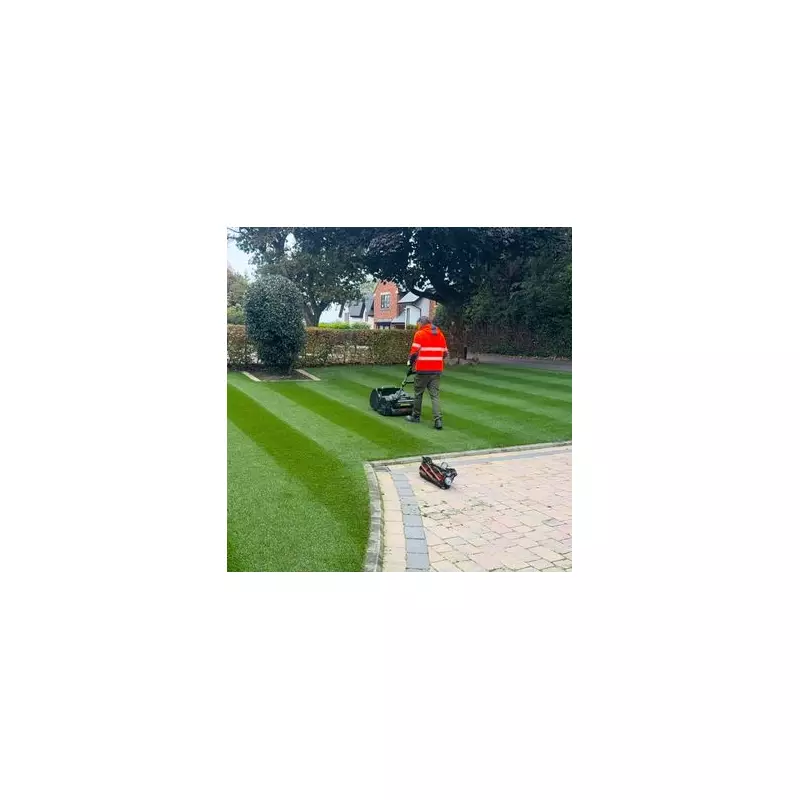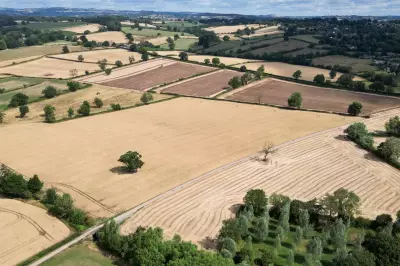
An award-winning lawn specialist with over three decades of experience has issued a vital seasonal warning to UK gardeners. Daniel Hibbert, who clinched the prestigious Britain's Best Lawn title in 2016, has shared three non-negotiable autumn practices to prevent lawns from being destroyed by diseases and damaging microclimates.
The Triple Threat to Your Autumn Lawn
Speaking exclusively to the Mirror, Daniel Hibbert, the 46-year-old expert behind a popular lawn maintenance YouTube channel, pinpointed the primary challenges for grass during the colder months. "Diseases and worms. That's like the arch nemesis of this time of year," he stated, highlighting the increased risks as temperatures drop.
His advice comes from hands-on experience, having worked with lawns for more than 30 years and now dedicating his efforts to educating homeowners online.
Daniel Hibbert's Three Essential Autumn Lawn Tips
1. Remove Fallen Leaves Immediately
The first and most critical tip is to keep the lawn clear of autumn leaves. Daniel emphasised the urgency, stating, "The most important things at this time of year now are keeping the leaves off the lawn as much as you can." He explained that a layer of leaves creates a canopy that traps heat and moisture underneath. This environment becomes a breeding ground for lawn diseases and encourages worm activity, leading to unsightly worm casts.
He warned that if you mow over these casts, "it squashes like you're rolling an egg out on a lawn so you got a massive patch of soil with no grass on it," resulting in significant soil deposits that kill the grass.
2. Clear Morning Dew from the Grass
The second crucial step is to remove morning dew. Daniel explained that excess moisture on the lawn can form microclimates. "So the water creates a greenhouse and then the light shines through it and it gets hot underneath and then you get a disease outbreak," he detailed. This greenhouse effect, created by the dew, can trigger disease outbreaks that rapidly damage the lawn's health.
3. Apply a Photosynthesis-Boosting Treatment
For gardens that suffer from low winter sunlight, Daniel recommends applying 5-ALA (amino levulinic acid). This product, which he sells as a specialised lawn liquid called "Winter Magic," enhances the grass's ability to photosynthesise in poor light conditions.
"It just increases photosynthesis in low light level conditions. So in the winter your plant's going to be able to absorb a bit more light than it would be able to normally," he explained. Interestingly, the same compound is used in brain tumour surgery to help doctors identify cancerous cells.
A Lawn Product with a Charitable Mission
In a heartfelt initiative, Daniel has committed to donating one pound from every bottle of his 'Winter Magic' sold to a brain tumour charity. This cause is personally significant to him, as his late grandmother passed away from a brain tumour in her early eighties.
"I donate a pound to a brain tumour charity just because there's a correlation between the two," he told the Mirror, linking his professional expertise to a deeply personal mission.
By following these three expert tips—leaf removal, dew management, and using a photosynthesis booster—gardeners can significantly increase their chances of maintaining a vibrant, healthy lawn ready to flourish when spring arrives.





